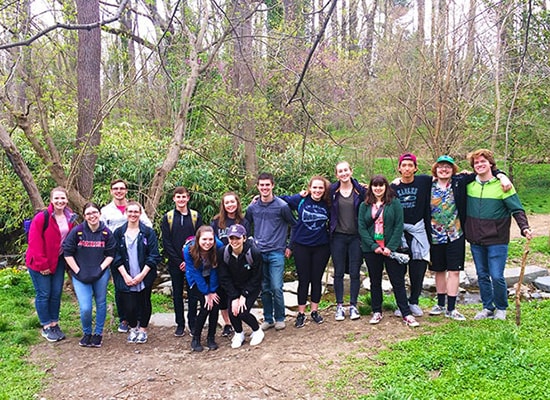Honors alumni making their mark on the world

The interdisciplinary approach of the Honors Program taught me to think critically, to approach a problem from many angles, and how to engage in vigorous and respectful debate. These skills were invaluable in law school and during my years as a corporate attorney, and have proved further useful in my positions on various non-profit boards. As a first-year student, the Honors Program introduced me to a great group of other students, which helped make the transition from high school easier, and the various social events and activities broaden my horizons and helped me learn to be comfortable in new environments.

I applied to the Honors Program because I wanted to fully invest in my educational experience at Loyola. The small class sizes allowed me to get personal support from my professors and the advanced course load allowed me to take classes outside of my political science major. In the Honors Program, I was pushed to bring my best self to the classroom every day, because my classmates and professors expected nothing less. This helped me bring that same motivation to the workplace.

Regardless if you are a theatre major or a biology major, an English major or an economics major, the Honors Program is valuable to work and life after Loyola because of the intensity with which it forces its students to contemplate the bigger picture. The Honors Program taught me how to have a debate with someone without talking past him or her, how to criticize the work of a peer, and how to present my own work to my peers. What’s more, the true value of the Program lies not in teaching the “how” but in challenging its students to answer the “why?” These lessons offered me the chance to be a more thoughtful, empathetic, and reasonable human being. In the Honors Program, I was surrounded by students who wanted to engage in these debates and professors who knew best how to facilitate them.

I was particularly interested in the Honors Program because of the rigor it promised as well as the opportunity to work closely with great professors. The program went beyond my expectations. Especially for the first two years, it was a chance to read and digest history, literature, theology, and philosophy texts that are fundamental to modern society. The best part was that I was one of 20 students who got to discuss them with an expert professor. The program took me beyond the rote acquisition of facts that happen in high school; I learned how to think and analyze to form my opinions—and I was surrounded with smart, sharp classmates, so I had to be able to defend those opinions with facts. Through the Honors Program, I learned how to work hard, which I think is a key to success in any element of life and work—and how to write and write well, which is often a challenge for people in science and medicine, but something I don't struggle with at all.

I applied to the Honors Program because I wanted to engage with the humanities as deeply as possible. I attended a prestigious public magnet high school that was strictly focused on science and technology, and the narrowness of my high school education taught me the value of a broad liberal arts education. I thought that the Honors Program curriculum would allow me to approach the human experience in a rich and deep way, from more than one perspective. It did not disappoint. I particularly appreciated the multidisciplinary approach of the curriculum, which allowed me to plot the course of Western intellectual progress chronologically and examine its themes through a number of analytical lenses. Today’s business environment is highly complex, and the ability to approach a problem from more than one perspective is critical.

Loyola's Honors Program was challenging and inspiring: to read vigorously from the greatest thinkers and critics of Western civilization: Plato and Aristotle, Augustine and Aquinas, Hegel and Marx, Nietzsche and Freud… I found the ambition of the program to be exceptional, and while I cannot say I remember (or that I loved) every book, I am grateful for the opportunity to be guided through such a journey. As a physics educator, much of my Honors Program experience affects how I interact with students. The small courses and emphasis on interactive, introspective, and open-ended seminar-style study were the most important aspects of the program. As a student whose ultimate goal was to study science, I would repeat what a professor in physics pointed out to me during my first year at Loyola: There are many schools where you can take advanced courses, or even double-major in the sciences, but there are not many where you can pursue both science and a fully realized program in the liberal arts.
Deadlines
Dec. 15: Early Action deadline for the Honors ProgramFeb. 15: Regular Decision deadline for the Honors Program
